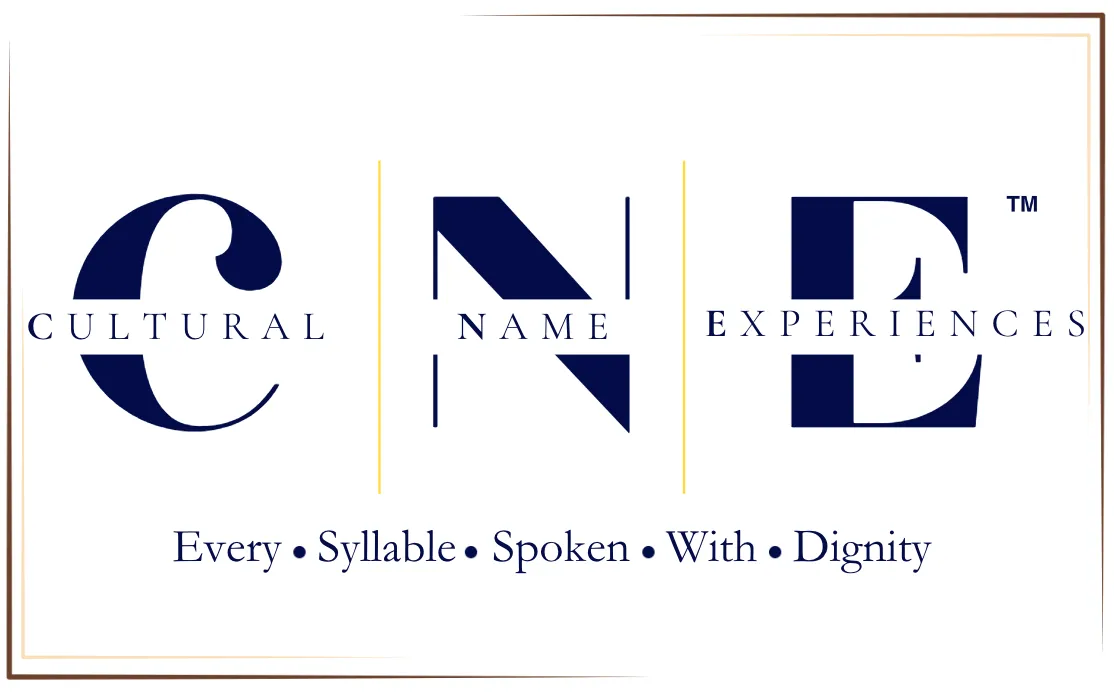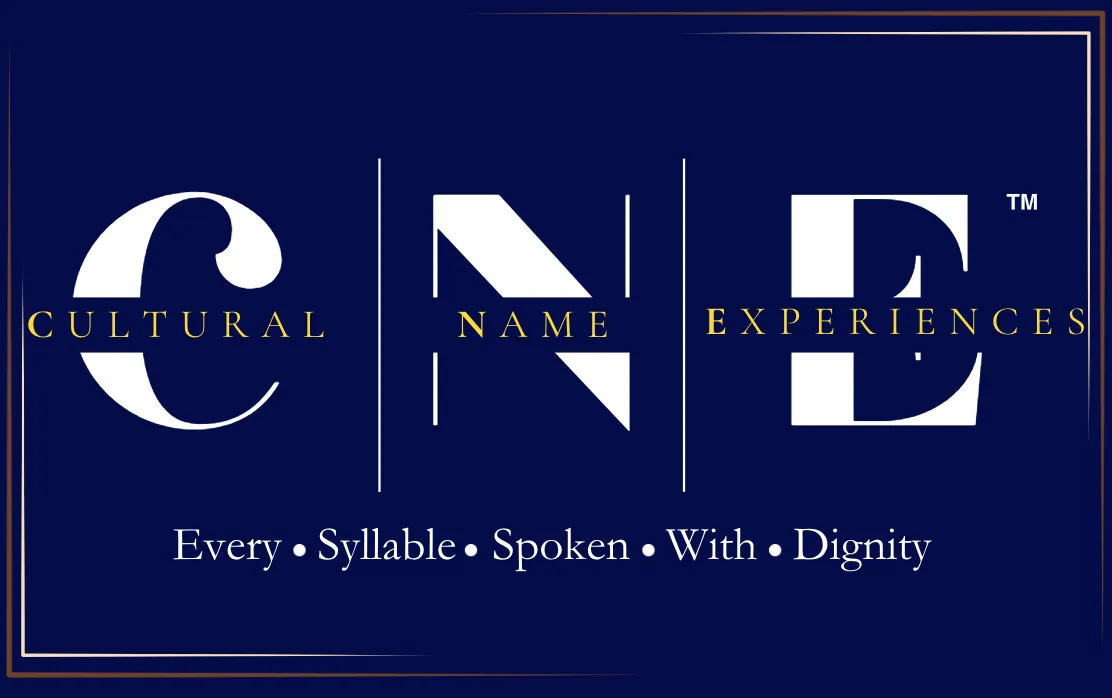TM
Cultural Name Experiences
Every. Syllable. Spoken. With. Dignity.
TM
More Than A Name:
School Prep for Parents
So You Can Ensure Every Syllable of Your Child’s Culturally Unique Name is Spoken by Others with the Dignity It Deserves
CNE Believes
Culturally unique names and respective cultural name experiences are
worthy of dignity & honor
Culturally Unique Name
Originates from and is deeply rooted in the richness of a specific culture, ethnic group, or geographic region.
Often carry distinct meanings, historical significance, or traditions within their originating culture.
Differ in terms of pronunciation, spelling, structure, or the concepts they represent, compared to names commonly found in the culture where the individual currently resides.
Cultural Name Experience
The unique reality of individuals who bear culturally unique names.
Acknowledges the dynamic and nuanced experiences individuals encounter such as cultural pride and legacy, emotional and mental health dynamics, societal implications, and an evolving adaptive journey.
Affirms the richness a culturally unique name represents and brings, while also acknowledging challenges faced.
Dignity
The accurate recognition, pronunciation, and respectful treatment of an individual's name as a symbol of their self identity and cultural heritage.
Recognizes a name is not just a label, but a significant part of a person's identity, rooted in history, culture, and familial significance.
Therefore, mispronouncing or altering someone's name can be seen as a violation of that individual's dignity.
Ensuring a culturally unique name is spoken correctly and treated with respect is a way to honor the individual's personhood and affirms the individual as valued and respected.
Honor
Deep-rooted respect for the weight and significance that the name holds for an individual and their cultural heritage.
Affirms that the name is not a burden or something to be embarrassed about but a source of strength and pride.
Affirms one should navigate the world and show up as their full selves, without feeling the need to disregard or alter their identity to fit societal norms.
Therefore, individuals should be proud of their name and the identity it represents and is empowered to boldly claim it, share it with others, and as needed advocate for themselves when mispronounced or altered.
Wearing a culturally unique name like "a badge of honor" means to carry the name with reverence, recognizing it as a notable representation of one's self identity and cultural heritage.
CNE Stance
There is undeniable beauty in how each child is uniquely, wonderfully, divinely crafted - from their cultural heritage, to personal characteristics, and unmined potential within. Every fiber intricately woven with purpose and intentionality to form their whole being.
Culturally unique names are precious thought-filled gifts from parents, to their children, at birth. Each culturally unique name conveys a distinct story of cultural richness, identity, and legacy. Every syl-la-ble should be spoken by others with the dignity it deserves, WITHOUT the need to accept mispronunciations, shortening, use of nicknames, anglicizing, or replacing with “easier” names.
Every child should freely wear their culturally unique name like the
badge of honor that it is.
CNE Offers
Proactive, Simplified, and Holistic Solutions for Parents of Children with Cultural Unique Names for use in school-related and extracurricular settings
FREE 3-Day Prep for Parents
Discover multi-pronged framework, that will ensure that every syllable of your child's name is not only cherished, but spoken by others with the dignity it deserves.
LIVE Virtual Workshop
Dive deep into the proprietary CNE Framework in a live session so you can confidently apply the framework and solutions in real-live situations with your child.
Customizable Solutions
Effectively curated solutions to tailor and apply in a holistic manner in preparation for interactions in school-related and extracurricular activities
Reclaiming Honor & Restoring Dignity One Spoken Syllable At A Time
Partner with CNE
Experience & Empathy - Holistic Approach - Tailored solutions
Personal Experience and Empathy
With firsthand experience as a child who began kindergarten after newly immigrating to the U.S., along with the challenges of raising my own children with culturally unique names, the CNE framework is born from decades of lived experiences, not mere theory.
The invaluable asset of our approach is the empathy that comes from both my personal transformation and the journeys of those we've served through CNE. This means you're not just getting another generic program; you're gaining a partnership that understands you, cherishing each syllable of your child's name as much as you do.
Holistic Approach Beyond Just Pronunciation
While ensuring the correct pronunciation of your child's name in school-related and extracurricular activity settings is a key focus, our approach at CNE goes well beyond that. We take a holistic view that engages both parent, child, and other stakeholders, covering everything from increased cultural awareness to renewed perspectives and practical, real-world solutions.
Our goal isn't just to teach others how to properly say a name; it's to empower your child to wear their name like a badge of honor, giving them the confidence and tools to navigate the world as their true selves.
Tailored Solutions Based on Real Success Stories
Success is our cornerstone—backed by ringing endorsements from educators who have interacted with children who've completed our program and evidence from transformed lives of children we've worked with. Our clients are not just looking for methods; they're seeking proven strategies tailored to their unique needs.
The CNE approach is far from generic—it's meticulously designed based on real-life success stories and provides actionable solutions for tangible results. Our tailored strategies, rooted in real-world success stories, offer a personalized blueprint for turning each syllable of your child's culturally unique name into a badge of honor.
Meet Your Cultural Name Experience Solution
Your Empathetic Solution to Elevate Your Child's Cultural Name Experience
with dignity & honor
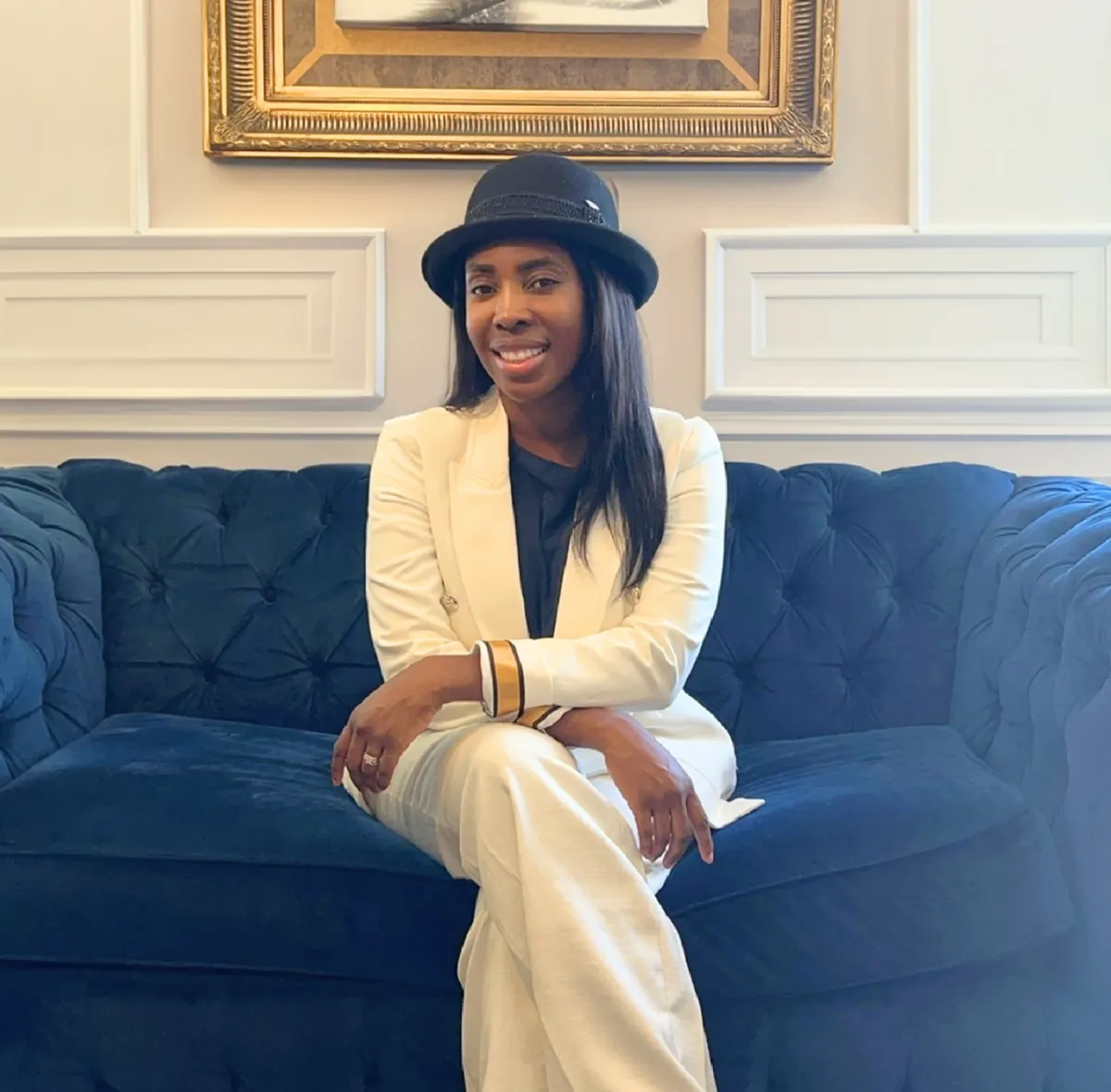
Like many of you, I've walked the path of navigating the complexities and beauty of having a culturally unique name.
Relocating to the U.S. at a tender age, I've felt the emotional weight of each mispronounced syllable, other related challenges, and the invisible yet indelible mark it can leave on a child. Thankfully, those dreadful moments have catalyzed into strength as I've also experienced the transformative power of turning those repeated challenging moments into triumphs—fueling a life mission underscored by hope, passion, and purpose.
Blending decades of personal experiences with a strong background in health sciences and management consultancy, I am committed to being more than just an advocate or a guide. I am your trusted partner and solution. Together, we forge this positive transformative journey for your children with culturally unique names. My holistic CNE approach, birthed from my personal journey and professional experiences, transcends mere pronunciation. It unearths powerful strategies to build parent-child-school relationships, fortify your child's self-confidence, and deepen their sense of cultural identity.
Let's band together to ensure your child's name is spoken by others with the dignity it deserves & your child wears the fullness of their culturally unique name like a badge of honor that it is — a shining testament to their irreplaceable cultural heritage and legacy.
CNE Impact
Reclaiming Honor - elevating cultural name experiences - Restoring Dignity
A trusted framework isn't built on promises; it's built on results. Who better to validate the transformative power of our CNE approach than the educators who've seen its impact firsthand?
Discover genuine endorsements from teachers and educators who attest not just to their accuracy in pronouncing their student's culturally unique names but also to stronger parent-child-school relationships and elevated levels of student confidence and cultural identity. These aren't merely success stories; they offer a glimpse into the transformative journey your child could experience through the CNE framework.
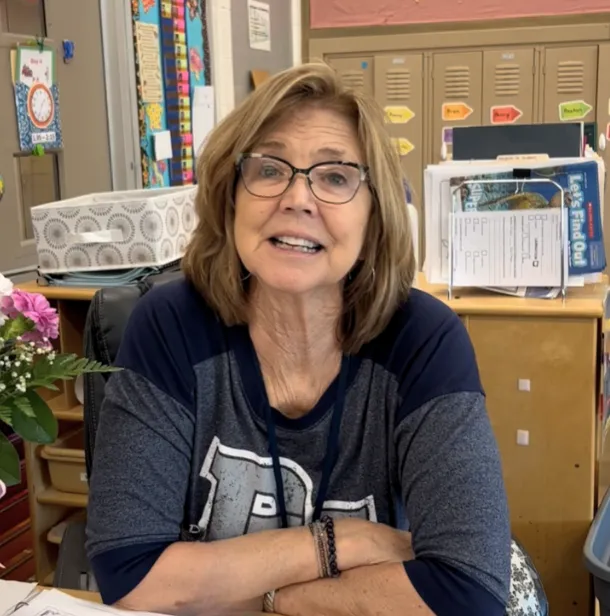
Mrs. Gaspelin -
Kindergarten
Teacher

“I was trying to figure out how to say it and it's so important that the first time you meet a child that you pronounce their name the correct way and that way I could teach the other children.[Now] they are all experts at it and were because of how he introduced himself."
"There were other teachers in the building that maybe the first time they met him they didn't know how to pronounce it but he was very cordial the way he said it, he wasn't embarrassed about it he was confident about it and he was pleasant when he told the teachers, other adults or the children that they were mispronouncing his name."
"It's very important because you can imagine if you are not called the right name or the name is not pronounced correctly you're going to think that you're lesser than the rest of the kids whose names are pronounced correctly. So this mother did a wonderful job."
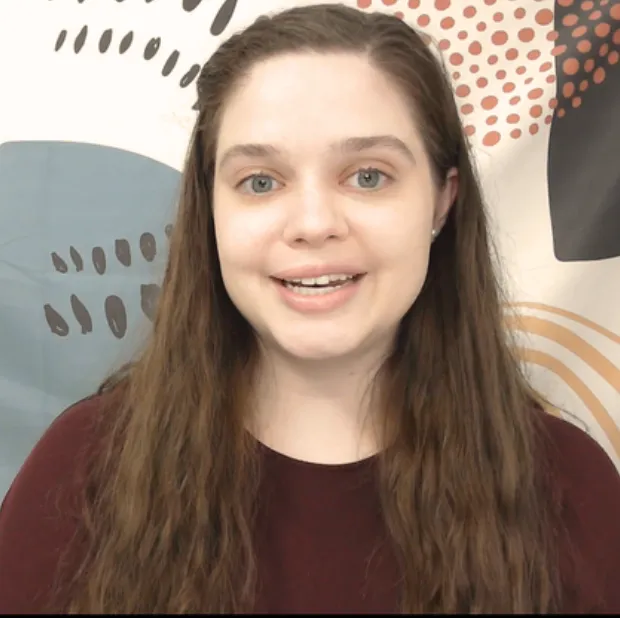
Mrs. Tran -
Private Academic Tutor

"I worked with a student in preschool who has a pretty unique name.
In one session I referred to him by a nickname, he very politely paused [the conversation] and let me know that he would prefer that I call him by his full name not that nickname and he made sure to break it down so I could pronounce it correctly.
I was so proud of my student to be able to communicate this in such an effective way and for his age as preschooler to be able to do this was such an incredible incredible moment."
"As an educator these situations and conversations are so valuable not only is it a chance to connect with your student but it helps them gain confidence in who they are which really translates into the classroom as well it can make a huge impact on their education"
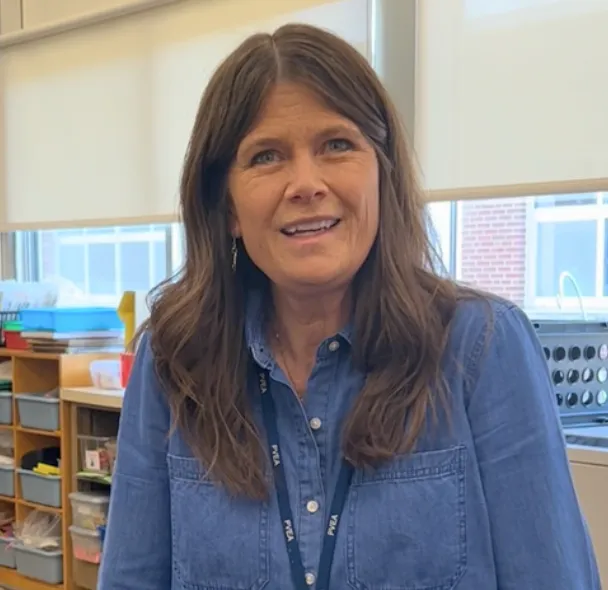
Mrs. Foley -
First Grade
Teacher

“The pronunciation of a name is really important because when a child hears their name that's what they identify with and so when you don't hear your name pronounced as it should be it doesn't feel like you, so then it's really helpful you know when parents can guide us
So then we can right away start with saying it correctly and get in the habit of saying it correctly and then it becomes just commonplace. I appreciate at the beginning of the year receiving details from the student's parents."
"I shared that with the other teachers , I even gave it to the substitute teacher that was in my classroom so again they were familiar with how to say it and I just think it's a form of respect and again it shows that the child is valued."
